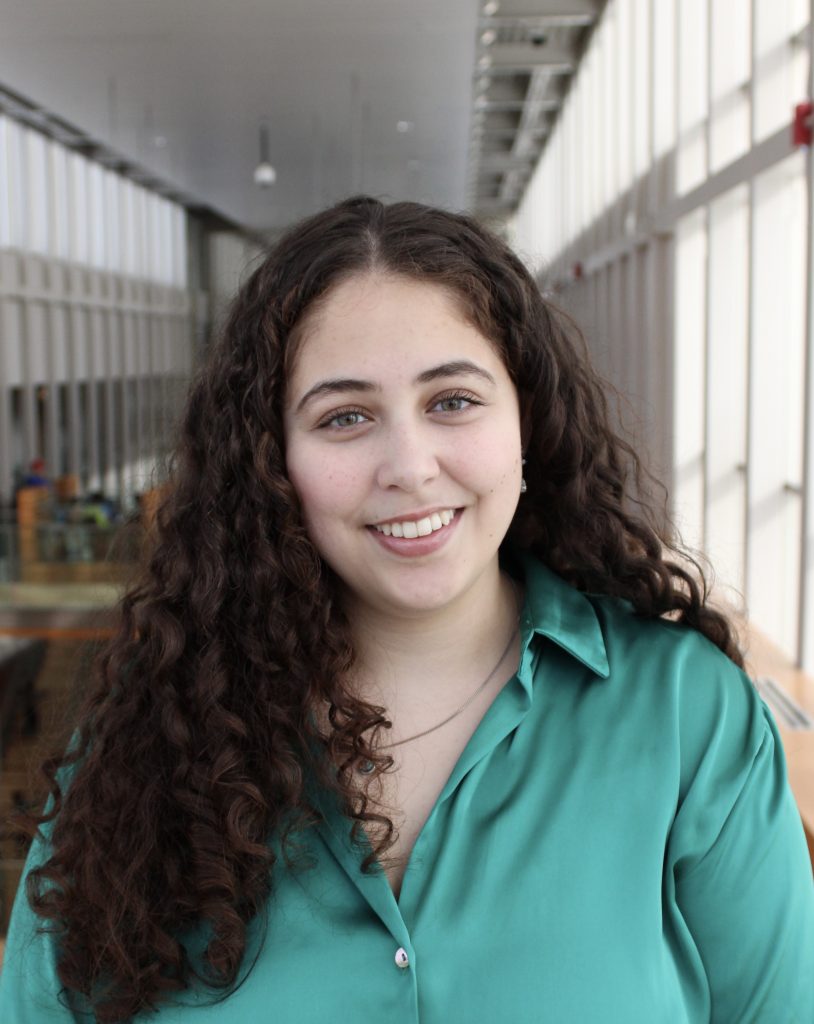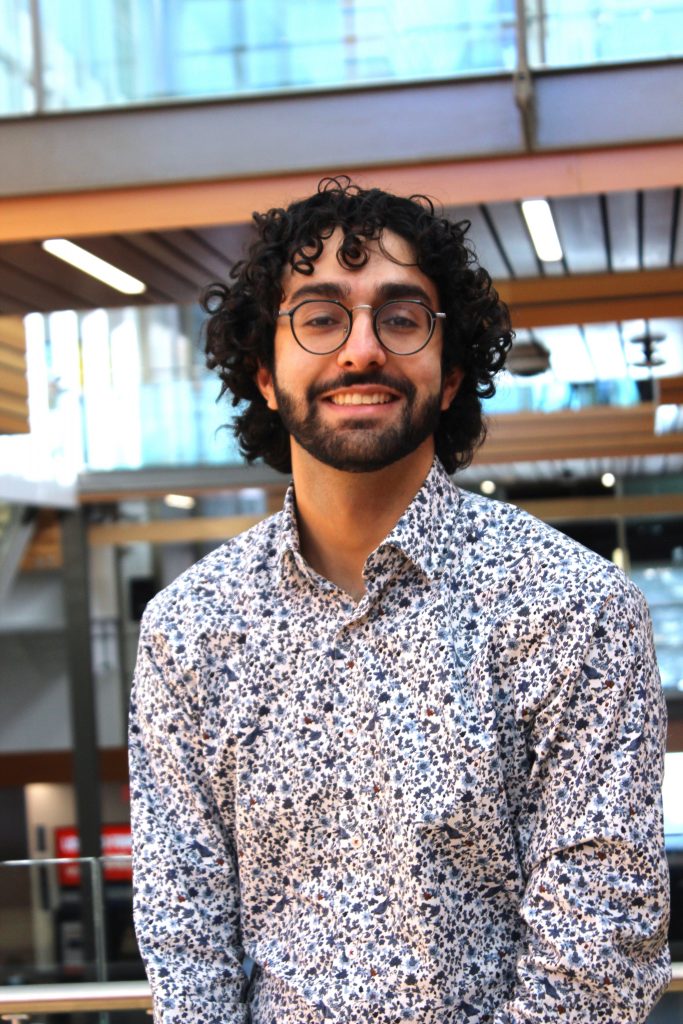2024 general election: President
In this year’s Students’ Union (SU) general elections, there are two candidates running for president. The president is the leader of the SU and is generally in charge of setting the direction of the organization. They work to maintain official relations with the university, oversee the work of the Students’ Legislative Council (SLC) and vote on the Board of Governors.
SANDRA AMIN

Sandra Amin is a fifth-year student running as a presidential candidate in this year’s SU General Election.
Her platform consists of three, broad pillars that encompass providing student support, advocating for post-secondary funding and enhancing campus facilities.
When it comes to advocating for university base-funding and investment in mental health support, Amin plans to lobby to the government while utilizing the media to demonstrate how the university is fundamental to society.
“My job as president would be to lobby the government and have consistent meetings with them to talk about student issues and how the decisions they take impact students,” she said.
With regards to the Student Wellness Services (SWS), Amin plans to extend contract times in the SWS to build and increase capacity but also recognizes the importance of structural changes to increase efficiency.
“We need to revisit the current structure and make sure that the resources being allocated are effective and efficient,” she said.
As for student housing advocacy at the municipal level, Amin aims to ensure that the previously passed affordable housing measures will be enforced while working with the Canadian Student Alliance to continue lobbying. At the provincial level, she remarked on advocating for rent control and landlord licensing by having lobby meetings.
Amin further highlighted the SU Consultation Guidelines in holding meaningful discussions to create transparent reporting and hold the university accountable to fair consultation processes. She remarked on the importance of having these conversations in spaces such as university committees and general university leadership to discuss prioritizing student needs.
“Having transparent reporting means that we can actually advocate to the provincial government and lobby them to return base funding,” she said.
Moreover, she emphasized for faculties to engage respective faculty-student representatives in the discussion to ensure that student voices are not left out of crucial discussions.
As for student-focused spaces, Amin plans to expand MacEwan Hall as a student hub by anticipating the renegotiation talks surrounding The Management and Use of Space Agreement (MUSA). By extension, Amin remarked that this would also allow for the expansion and diversification of food vendors on campus.
“We need to make sure that we are getting affordable vendors in there, that we’re getting diverse food vendors in there, foods that can support students who are vegetarian or vegan, or need halal foods,” she said.
Ultimately, although it is evident that Amin has a strong grasp of student concerns, much of her platform points are too broad and lacks the concrete ways of implementation that are present in her opponent’s vision and strategy.
ERMIA REZAEI-AFSAH

Ermia Rezaei-Afsah is another fifth-year student running as a presidential candidate in this year’s SU General Election. Rezaei-Afsah is running on a platform of affordability and direct action focused on four pillars: restoring post-secondary funding, recognition of academic rights, improving student support and combatting the student housing crisis.
Throughout his time at the SU as the vice president student life and Faculty of Arts representative, Rezaei-Afsah recognized the need to initiate an Equity, Diversity and Inclusion review of SU processes and operations. He deems that there are policies within that are exclusionary, and do not offer a lot of flexibility.
“These policies and processes tend to take a very similar form of dialogue, which is that these policies are drafted to treat everyone equally,” he said. “That’s a problem, we don’t want to be treating everyone equally, we want to be treating them equitably.”
Informed by his role as VPSL, Rezaei-Afsah plans to tackle food security and affordability on campus by creating an institutional plan and making food literacy a priority.
“That could potentially look like working with the university to establish an office of food security,” he said.
Although he considers the Food Hub as an accomplishment, he recognizes that food insecurity must be a presidential and provost priority.
In line with improving student support, he also calls for the province to fund the Sexual and Gender-Based Violence Prevention services in light of the 2023 Leger Report which outlined a crisis that fifty per cent of women on campus experience a form of sexual harassment or assault, majority of which take place in experiential learning.
“What I would do as president is make sure that we go up to Edmonton and properly lobby, advocate and place political media pressure on the province to outline the very crisis that they themselves highlighted,” he said.
Finally, Rezaei-Afsah plans to utilize his presidential leverage, if elected, to ensure the city is taking effect in regards to zoning and prioritizing student housing. For short-term solutions, he plans to work with ancillary services to find hotel buildings to create temporary units.
Overall, Rezaei-Afsah’s platform is specific, tangible and realistic within the time scope of a presidential tenure. His previous role as VPSL places student consultation at the forefront of his decision-making processes, which makes him an ideal and compelling candidate for this position.
All undergraduate students may vote for one of the two candidates for PRESIDENT or ABSTAIN from voting.
